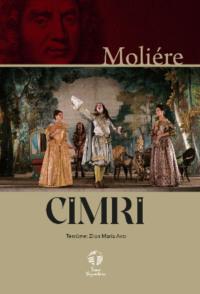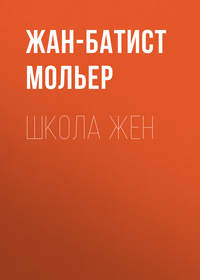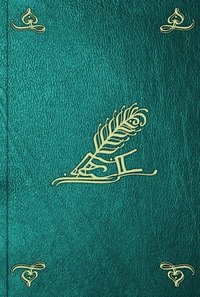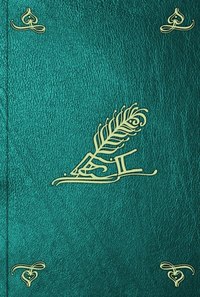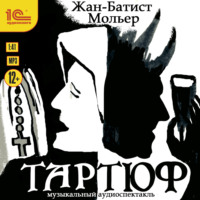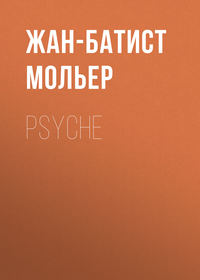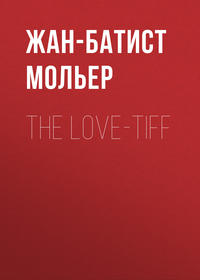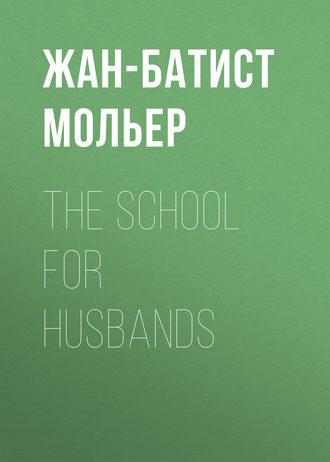 полная версия
полная версияThe School for Husbands

Molière
The School for Husbands
INTRODUCTORY NOTICE
The School for Husbands was the first play in the title of which the word "School" was employed, to imply that, over and above the intention of amusing, the author designed to convey a special lesson to his hearers. Perhaps Molière wished not only that the general public should be prepared to find instructions and warnings for married men, but also that they who were wont to regard the theatre as injurious, or at best trivial, should know that he professed to educate, as well as to entertain. We must count the adoption of similar titles by Sheridan and others amongst the tributes, by imitation, to Molière's genius.
This comedy was played for the first time at Paris, on the 24th of June, 1661, and met with great success. On the 12th of July following it was acted at Vaux, the country seat of Fouquet, before the whole court, Monsieur, the brother of the King, and the Queen of England; and by them also was much approved. Some commentators say that Molière was partly inspired by a comedy of Lope de Vega. La Discreta enamorada, The Cunning Sweetheart; also by a remodelling of the same play by Moreto, No puede ser guardar una muger, One cannot guard a woman; but this has lately been disproved. It appears, however, that he borrowed the primary idea of his comedy from the Adelphi of Terence; and from a tale, the third of the third day, in the Decameron of Boccaccio, where a young woman uses her father-confessor as a go-between for herself and her lover. In the Adelphi there are two old men of dissimilar character, who give a different education to the children they bring up. One of them is a dotard, who, after having for sixty years been sullen, grumpy and avaricious, becomes suddenly lively, polite, and prodigal; this Molière had too much common sense to imitate.
The School for Husbands marks a distinct departure in the dramatist's literary progress. As a critic has well observed, it substitutes for situations produced by the mechanism of plot, characters which give rise to situations in accordance with the ordinary operations of human nature. Molière's method – the simple and only true one, and, consequently, the one which incontestably establishes the original talent of its employer – is this: At the beginning of a play, he introduces his principal personages: sets them talking; suffers them to betray their characters, as men and women do in every-day life, – expecting from his hearers that same discernment which he has himself displayed in detecting their peculiarities: imports the germ of a plot in some slight misunderstanding or equivocal act; and leaves all the rest to be effected by the action and reaction of the characters which he began by bringing out in bold relief. His plots are thus the plots of nature; and it is impossible that they should not be both interesting and instructive. That his comedies, thus composed, are besides amusing, results from the shrewdness with which he has selected and combined his characters, and the art with which he arranges the situations produced.
The character-comedies of Molière exhibit, more than any others, the force of his natural genius, and the comparative weakness of his artistic talent. In the exhibition and the evolution of character, he is supreme. In the unravelling of his plots and the dénouement of his situations, he is driven too willingly to the deus ex machina.
The School for Husbands was directed against one of the special and prominent defects of society in the age and country in which Molière lived. Domestic tyranny was not only rife, but it was manifested in one of its coarsest forms. Sganarelle, though twenty years younger than Ariste, and not quite forty years old, could not govern by moral force; he relied solely on bolts and bars. Physical restraint was the safeguard in which husbands and parents had the greatest confidence, not perceiving that the brain and the heart are always able to prevail against it. This truth Molière took upon himself to preach, and herein he surpasses all his rivals; in nothing more than in the artistic device by which he introduces the contrast of the wise and trustful Ariste, raisonneur as he is called in French, rewarded in the end by the triumph of his more humane mode of treatment. Molière probably expresses his own feelings by the mouth of Ariste: for The School for Husbands was performed on the 24th of June, 1661, and about eight months later, on the 20th of February, 1662, he married Armande Béjart, being then about double her age. As to Sganarelle in this play, he ceases to be a mere buffoon, as in some of Molière's farces, and becomes the personification of an idea or of a folly which has to be ridiculed.
Molière dedicated The School for Husbands to the Duke of Orleans, the King's only brother, in the following words: —
MY LORD,I here shew France things that are but little consistent. Nothing can be so great and superb as the name I place in front of this book; and nothing more mean than what it contains. Every one will think this a strange mixture; and some, to express its inequality, may say that it is like setting a crown of pearls and diamonds on an earthen statue, and making magnificent porticos and lofty triumphal arches to a mean cottage. But, my Lord, my excuse is, that in this case I had no choice to make, and that the honour I have of belonging to your Royal Highness, [Footnote: Molière was the chief of the troupe of actors belonging to the Duke of Orleans, who had only lately married, and was not yet twenty-one years old.] absolutely obliged me to dedicate to you the first work that I myself published. [Footnote: Sganarelle had been borrowed by Neufvillenaine; The Pretentious Ladies was only printed by Molière, because the copy of the play was stolen from him; Don Garcia of Navarre was not published till after his death, in 1682.] It is not a present I make you, it is a duty I discharge; and homages are never looked upon by the things they bring. I presumed, therefore, to dedicate a trifle to your Royal Highness, because I could not help it; but if I omit enlarging upon the glorious truths I might tell of you, it is through a just fear that those great ideas would make my offering the more inconsiderable. I have imposed silence on myself, meaning to wait for an opportunity better suited for introducing such fine things; all I intended in this epistle was to justify my action to France, and to have the glory of telling you yourself, my Lord, with all possible submission, that I am your Royal Highness' very humble, very obedient, and very faithful servant,
MOLIÈREIn the fourth volume of the "Select Comedies of M. de Molière, London, 1732," the translation of The School for Husbands is dedicated to the Right Honourable the Lady Harriot Campbell, in the following words: —
MADAM,A Comedy which came abroad in its Native Language, under the Patronage of the Duke of ORLEANS, Brother to the King of FRANCE, attempts now to speak English, and begs the Honour of Your LADYSHIP'S Favour and Acceptance. That distinguishing good Sense, that nice Discernment, that refined Taste of Reading and Politeness for which Your LADYSHIP is so deservedly admir'd, must, I'm persuaded, make You esteem Molière; whose way of expression is easy and elegant, his Sentiments just and delicate, and his morals untainted: who constantly combats Vice and Folly with strong Reason and well turn'd Ridicule; in short, whose Plays are all instructive, and tend to some useful Purpose: – An Excellence sufficient to recommend them to your LADYSHIP.
As for this Translation, which endeavours to preserve the Spirit as well as Meaning of the Original, I shall only say, that if it can be so happy as to please Your LADYSHIP, all the Pains it cost me will be over-paid.
I beg Pardon for this Presumption, and am, with the greatest Respect that's possible, Madam, Your Ladyship's Most Obedient and most Humble Servant,
THE TRANSLATORSir Charles Sedley, well known through a history of a "frolick" which Pepys relates in his "Diary," [Footnote: See Pepys' Diary, October 23, 1668.] wrote The Mulberry Garden, of which Langbaine, in his "An Account of the Dramatick Poets," states "I dare not say that the character of Sir John Everyoung and Sir Samuel Forecast are copies of Sganarelle and Ariste in Molière's l'École des Maris; but I may say, that there is some resemblance, though whoever understands both languages will readily and with justice give our English wit the preference; and Sir Charles is not to learn to copy Nature from the French." This comedy, which was played by his Majesty's servants at the Theatre Royal, 1688, is dedicated to the Duchess of Richmond and Lennox, a lady who has "'scap'd (prefaces) very well hitherto," but, says Sir Charles, "Madam, your time is come, and you must bear it patiently. All the favour I can show you is that of a good executioner, which is, not to prolong your pain." This play has two girls like Isabella, called Althea and Diana, two like Leonor, Victoria and Olivia, and four lovers, as well as a rather intricate plot. The Epilogue is amusing, and we give the beginning of it: —
Poets of all men have the hardest game,Their best Endeavours can no Favours claim.The Lawyer if o'erthrown, though by the Laws,He quits himself, and lays it on your Cause.The Soldier is esteem'd a Man of War,And Honour gains, if he but bravely dare.The grave Physician, if his Patient dye,He shakes his head, and blames Mortality.Only poor Poets their own faults must bear;Therefore grave Judges be not too severe.Flecknoe has also imitated several of the scenes of The School forHusbands in The Damoiselles à la Mode, which is a medley of several of Molière's plays (see Introductory Notice to ThePretentious Young Ladies).
James Miller has likewise followed, in The Man of Taste (Act i., Scene 2). (see Introductory Notice to The Pretentious YoungLadies), one scene of the first act of Molière's The School forHusbands.
Murphy, in The School for Guardians, has borrowed from three plays of Molière. The main plot is taken from The School for Wives; some incidents of the second act are taken from The Blunderer (see Introductory Notice to The Blunderer), but the scenes in which Oldcastle and Lovibond state their intention of marrying their wards, and the way in which one of the wards, Harriet, makes her love known to Belford is taken from The School for Husbands, though Leonor does not betray in the French comedy, as she does in the English, the confidence placed in her. The French Isabella acts like Harriet, but then she has a foolish and jealous guardian.
Wycherley in The Country Wife, probably acted in 1672 or 1673, and which is partly an imitation of Molière's School for Wives, has borrowed from The School for Husbands, the letter which Isabella writes to Valère (Act ii., Scene 8), and also the scene in which Isabella escapes disguised in her sister's clothes: but, of course, to give an additional zest to the English play, the author makes Pinchwife himself bring his wife to her lover, Horner. The scene hardly bears transcribing. He has also partly imitated in The Gentleman Dancing-Master, first performed in 1673, some scenes of The School for Husbands.
Otway, in The Soldier's Fortune (see Introductory Notice to Sganarelle, or The Self-Deceived Husband), has borrowed from Molière's School for Husbands that part of his play in which Lady Dunse makes her husband the agent for conveying a ring and a letter to her lover.
DRAMATIS PERSONÆ
SGANARELLE, [Footnote: This part was played by Molière himself.
In the inventory taken after Molière's death, and given by M. Soulié, we find: "A dress for The School for Husbands, consisting of breeches, doublet, cloak, collar, purse and girdle, all of a kind of brown coloured (couleur de muse) satin."]
}
} brothers.
ARISTE, )
VALÈRE, lover to Isabella.
ERGASTE, servant to Valère.
A MAGISTRATE[Footnote: The original has un Commissaire, who in Molière's time, appears to have been a kind of inferior magistrate under the authority of the Lieutenant-général de la Police. The Commissaires de Police were not established till 1699; and The School for Husbands was played for the first time in 1661.]
A NOTARYISABELLA, )
) sisters.
LÉONOR, }
LISETTE, maid to Isabella.
Scene. – A PUBLIC PLACE IN PARIS.
ACT I
SCENE I. – SGANARELLE, ARISTE
SGAN. Pray, brother, let us talk less, and let each of us live as he likes. Though you have the advantage of me in years, and are old enough to be wise, yet I tell you that I mean to receive none of your reproofs; that my fancy is the only counsellor I shall follow, and that I am quite satisfied with my way of living.
AR. But every one condemns it.
SGAN. Yes, fools like yourself, brother.
AR. Thank you very much. It is a pleasant compliment.
SGAN. I should like to know, since one ought to hear everything, what these fine critics blame in me.
AR. That surly and austere temper which shuns all the charms of society, gives a whimsical appearance to all your actions, and makes everything peculiar in you, even your dress.
SGAN. I ought then to make myself a slave in fashion, and not to put on clothes for my own sake? Would you not, my dear elder brother – for, Heaven be thanked, so you are, to tell you plainly, by a matter of twenty years; and that is not worth the trouble of mentioning – would you not, I say, by your precious nonsense, persuade me to adopt the fashions of those young sparks of yours?
[Footnote: The original has vos jeunes muguets, literally "your young lilies of the valley," because in former times, according to some annotators, the courtiers wore natural or artificial lilies of the valley in their buttonholes, and perfumed themselves with the essence of that flower. I think that muguet is connected with the old French word musguet, smelling of musk. In Molière's time muguet had become rather antiquated; hence it was rightly placed in the mouth of Sganarelle, who likes to use such words and phrases. Rabelais employs it in the eighth chapter of Gargantua, un tas de muguets, and it has been translated by Sir Thomas Urquhart as "some fond wooers and wench-courters." The fashion of calling dandies after the name of perfumes is not rare in France. Thus Regnier speaks of them as marjolets, from marjolaine, sweet marjoram; and Agrippa d'Aubigné calls them muscadins (a word also connected with the old French musguet), which name was renewed at the beginning of the first French revolution, and bestowed on elegants, because they always smelled of musk.]
Oblige me to wear those little hats which provide ventilation for their weak brains, and that flaxen hair, the vast curls whereof conceal the form of the human face;
[Footnote: The fashion was in Molière's time to wear the hair, or wigs, very long, and if possible of a fair colour, which gave to the young fashionables, hence called blondins, an effeminate air. Sganarelle addresses Valère (Act ii. Scene 9), likewise as Monsieur aux blonds cheveux. In The School for Wives (Act ii. Scene 6), Arnolphe also tells Agnès not to listen to the nonsense of these beaux blondins. According to Juvenal (Satire VI.) Messalina put a fair wig on to disguise herself. Louis XIV. did not begin to wear a wig until 1673.]
those little doublets but just below the arms, and those big collars falling down to the navel; those sleeves which one sees at table trying all the sauces, and those petticoats called breeches; those tiny shoes, covered with ribbons, which make you look like feather-legged pigeons; and those large rolls wherein the legs are put every morning, as it were into the stocks, and in which we see these gallants straddle about with their legs as wide apart, as if they were the beams of a mill?
[Footnote: The original has marcher écarquillés ainsi que des volants. Early commentators have generally stated that volants means here "the beams of a mill," but MM. Moland and E. Despois, the last annotators of Molière, maintain that it stands for "shuttlecock," because the large rolls (canons), tied at the knee and wide at the bottom, bore a great resemblance to shuttlecocks turned upside down. I cannot see how this can suit the words marcher écarquillés, for the motion of the canons of gallants, walking or straddling about, is very unlike that produced by shuttlecocks beaten by battledores; I still think "beams of a mill" right, because, though the canons did not look like beams of a mill, the legs did, when in motion.]
I should doubtless please you, bedizened in this way; I see that you wear the stupid gewgaws which it is the fashion to wear.
AR. We should always agree with the majority, and never cause ourselves to be stared at. Extremes shock, and a wise man should do with his clothes as with his speech; avoid too much affectation, and without being in too great a hurry, follow whatever change custom introduces. I do not think that we should act like those people who always exaggerate the fashion, and who are annoyed that another should go further than themselves in the extremes which they affect; but I maintain that it is wrong, for whatever reasons, obstinately to eschew what every one observes; that it would be better to be counted among the fools than to be the only wise person, in opposition to every one else.
SGAN. That smacks of the old man who, in order to impose upon the world, covers his grey hairs with a black wig.
AR. It is strange that you should be so careful always to fling my age in my face, and that I should continually find you blaming my dress as well as my cheerfulness. One would imagine that old age ought to think of nothing but death, since it is condemned to give up all enjoyment; and that it is not attended by enough ugliness of its own, but must needs be slovenly and crabbed.
SGAN. However that may be, I am resolved to stick to my way of dress. In spite of the fashion, I like my cap so that my head may be comfortably sheltered beneath it; a good long doublet buttoned close, as it should be,
[Footnote: The young dandies in the beginning of the reign of Louis XIV., wore slashed doublets, very tight and short.]
which may keep the stomach warm, and promote a healthy digestion; a pair of breeches made exactly to fit my thighs; shoes, like those of our wise ancestors, in which my feet may not be tortured: and he who does not like the look of me may shut his eyes.
SCENE II. – LÉONOR, ISABELLA, LISETTE; ARISTE and SGANARELLE, conversing in an under-tone, unperceived
LEO. (To Isabella). I take it all on myself, in case you are scolded.
LIS. (To Isabella). Always in one room, seeing no one?
ISA. Such is his humour.
LEO. I pity you, sister.
LIS. (To Léonor). It is well for you, madam, that his brother is of quite another disposition; fate was very kind in making you fall into the hands of a rational person.
ISA. It is a wonder that he did not lock me up to-day, or take me with him.
LIS. I declare I would send him to the devil, with his Spanish ruff, and…
[Footnote: The Spanish ruff (fraise) was in fashion at the end of Henri IV.'s reign; in the reign of Louis XIII., and in the beginning of Louis XIV.'s, flat-lying collars, adorned with lace were worn, so that those who still stuck to the Spanish ruff in 1661, were considered very old-fashioned people.]
SGAN. (Against whom Lisette stumbles). Where are you going, if I may ask?
LEO. We really do not know; I was urging my sister to talk a walk, and enjoy this pleasant and fine weather; but…
SGAN. (To Léonor). As for you, you may go wherever you please. (To Lisette). You can run off; there are two of you together. (To Isabella). But as for you, I forbid you – excuse me – to go out.
AR. Oh, brother! let them go and amuse themselves.
SGAN. I am your servant, brother.
AR. Youth will…
SGAN. Youth is foolish, and old age too, sometimes.
AR. Do you think there is any harm in her being with Léonor?
SGAN. Not so; but with me I think she is still better.
AR. But…
SGAN. But her conduct must be guided by me; in short, I know the interest I ought to take in it.
AR. Have I less in her sister's?
SGAN. By Heaven! each one argues and does as he likes. They are without relatives, and their father, our friend, entrusted them to us in his last hour, charging us both either to marry them, or, if we declined, to dispose of them hereafter. He gave us, in writing, the full authority of a father and a husband over them, from their infancy. You undertook to bring up that one; I charged myself with the care of this one. You govern yours at your pleasure. Leave me, I pray, to manage the other as I think best.
AR. It seems to me…
SGAN. It seems to me, and I say it openly, that is the right way to speak on such a subject. You let your ward go about gaily and stylishly; I am content. You let her have footmen and a maid; I agree. You let her gad about, love idleness, be freely courted by dandies; I am quite satisfied. But I intend that mine shall live according to my fancy, and not according to her own; that she shall be dressed in honest serge, and wear only black on holidays; that, shut up in the house, prudent in bearing, she shall apply herself entirely to domestic concerns, mend my linen in her leisure hours, or else knit stockings for amusement; that she shall close her ears to the talk of young sparks, and never go out without some one to watch her. In short, flesh is weak; I know what stories are going about. I have no mind to wear horns, if I can help it; and as her lot requires her to marry me, I mean to be as certain of her as I am of myself.
ISA. I believe you have no grounds for…
SGAN. Hold your tongue, I shall teach you to go out without us!
LEO. What, sir…
SGAN. Good Heavens, madam! without wasting any more words, I am not speaking to you, for you are too clever.
LEO. Do you regret to see Isabella with us?
SGAN. Yes, since I must speak plainly; you spoil her for me. Your visits here only displease me, and you will oblige me by honouring us no more.
LEO. Do you wish that I shall likewise speak my thoughts plainly to you? I know not how she regards all this; but I know what effect mistrust would have on me. Though we are of the same father and mother, she is not much of my sister if your daily conduct produces any love in her.
LIS. Indeed, all these precautions are disgraceful. Are we in Turkey, that women must be shut up? There, they say, they are kept like slaves; this is why the Turks are accursed by God. Our honour, sir, is very weak indeed, if it must be perpetually watched. Do you think, after all, that these precautions are any bar to our designs? that when we take anything into our heads, the cleverest man would not be but a donkey to us? All that vigilance of yours is but a fool's notion; the best way of all, I assure you, is to trust us. He who torments us puts himself in extreme peril, for our honour must ever be its own protector. To take so much trouble in preventing us is almost to give us a desire to sin. If I were suspected by my husband, I should have a very good mind to justify his fears.
SGAN. (to Ariste). This, my fine teacher, is your training. And you endure it without being troubled?
AR. Brother, her words should only make you smile. There is some reason in what she says. Their sex loves to enjoy a little freedom; they are but ill-checked by so much austerity. Suspicious precautions, bolts and bars, make neither wives nor maids virtuous. It is honour which must hold them to their duty, not the severity which we display towards them. To tell you candidly, a woman who is discreet by compulsion only is not often to be met with. We pretend in vain to govern all her actions; I find that it is the heart we must win. For my part, whatever care might be taken, I would scarcely trust my honour in the hands of one who, in the desires which might assail her, required nothing but an opportunity of falling.


